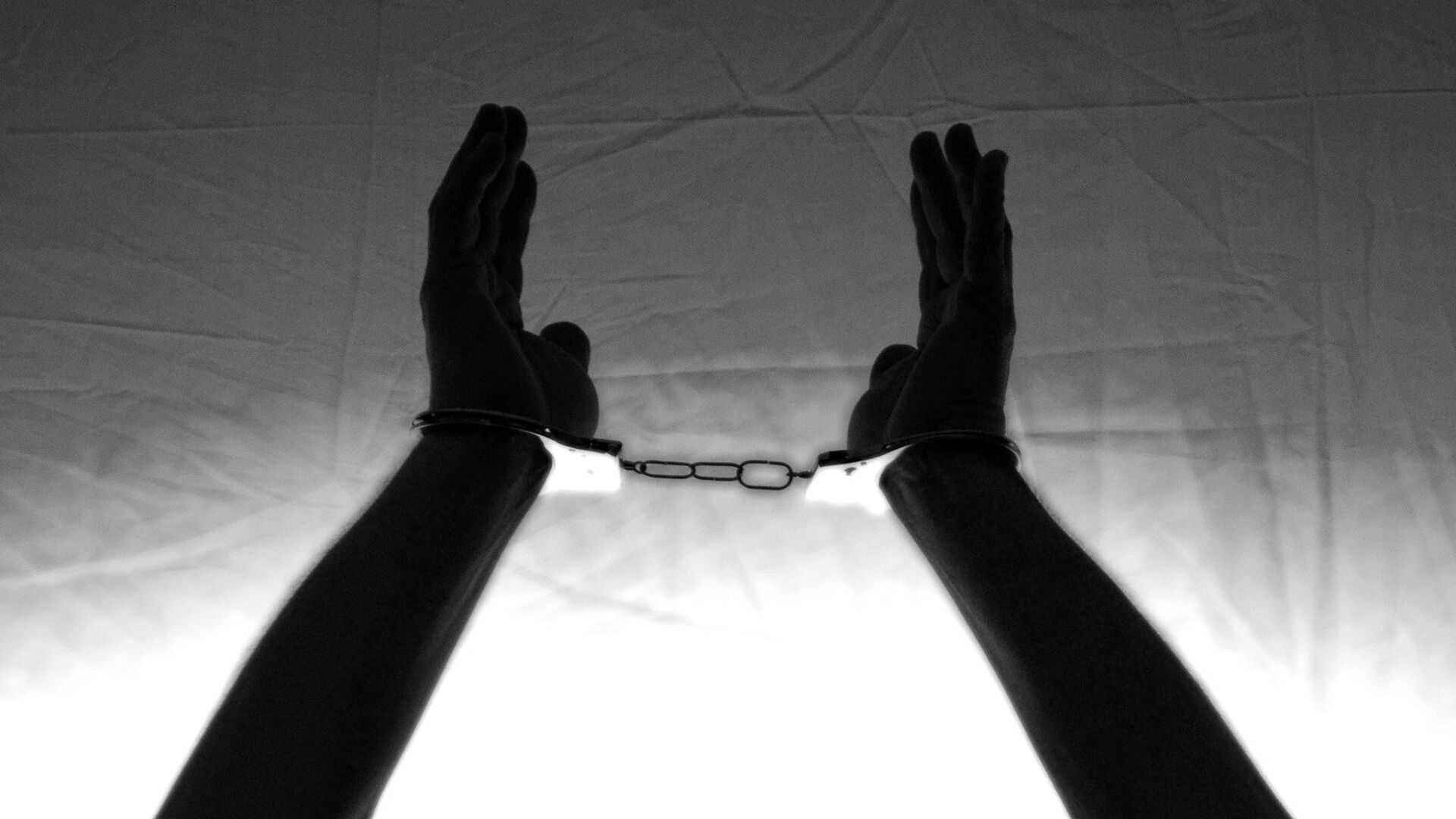https://sputnikglobe.com/20221204/modern-slavery-all-around-us-african-activists-experts-warn-1105020980.html
Modern Slavery 'All Around Us,' African Activists, Experts Warn
Modern Slavery 'All Around Us,' African Activists, Experts Warn
Sputnik International
In an interview to Sputnik, three activists and experts from Africa delivered their opinion on the modern slavery issue.
2022-12-04T12:53+0000
2022-12-04T12:53+0000
2022-12-08T14:08+0000
africa
africa insight
modern slavery
slave labor
slave laborers
https://cdn1.img.sputnikglobe.com/img/106476/67/1064766788_120:0:1814:953_1920x0_80_0_0_a1cfba9d4d285df9fe16e9ebbdd04f22.jpg
The goal of the International Day for the Abolition of Slavery is to highlight the history of slavery – and to remind people that the problem still exists in our times in form of forced labor, child labor, trafficking of women and children, and illegal organ harvesting, says Method Dallu, a youth development activist from Tanzania, in an interview with Sputnik.According to a 2022 report by international human rights group Walk Free, some 49.6 million people live in modern slavery – in forced labor and forced marriage; roughly a quarter of all victims of modern slavery are children. Of the 27.6 million people trapped in forced labor, 17.3 million are in forced labor exploitation in the private economy, 6.3 million are in commercial sexual exploitation, and nearly four million are in forced labor imposed by the state.In 2020–2021, there was an increase in forced labor as well as forced marriage, mainly caused by the COVID-19 pandemic and its shockwaves, says Nakang Lillian Sebit, a woman mediator and human rights defender from South Sudan. According to her, the crisis has left many people unemployed and thus vulnerable, with "their fundamental principles and rights at work at greater risk."Africa's socio-economic situation in particular has several traits that contribute to the growth of modern slavery in the region, the activists believe.On the continent, "most of the countries are still developing" and their economies are dominated by European firms that exploit Africans "in one way or the other," Mickdad Uhuru, a social work professional and a political analyst from Tanzania, point out. In his opinion, the conditions in which Africans work "lead to modern slavery." "It's almost neocolonialism," Uhuru said.The continent's current state, including the modern slavery problem, has a strong connection to the colonial times and the slave trade of that era, the activists stress.Over the years, African leaders have been calling for reparations from European countries for damage caused by the slave trade, with Ghana’s President Nana Addo Dankwa Akufo-Addo saying that reparations are “long overdue.”However, the slave trade was only one destructive factor created by colonialism, the speakers note. Method Dallu underlines that Africa suffered from economic dependence and exploitation under the colonial system, which left a heritage of disunity as well as cultural imperialism. The educational system created by colonialism lacked technical, vocational, and scientific studies in order to make Africans inferior to their masters, he believes.Uhuru added that the leadership system adopted from Europe during the colonial times is "to some extent [...] not that compatible" with an African context. Democracy on the continent does not work in the same manner as it does in Europe or the US, he said, noting that in Africa, those who have financial power, are "the ones who are dominating [...] the democracy."Thus, it takes much effort to address such issues as modern slavery. To combat and prevent it, Sebit believes, factors that increase people's vulnerability to exploitation – "from poverty to gender discrimination," as well as conflict, political instability, and forced displacement – should be addressed, "if we are to achieve, for example, the sustainable development goal 8.7, that is, by 2030 as it is being stipulated."The measures proposed by the UN to fight modern slavery include reviewing and enforcing laws and labor inspections, ending state-imposed forced labor, applying stronger measures to combat forced labor and trafficking in business and supply chains, raising the legal age of marriage to 18 years, as well as promoting fair and ethical recruitment, and providing greater support for women, girls, and vulnerable individuals.
https://sputnikglobe.com/20221112/africans-working-in-sicilys-olive-fields-live-in-grim-conditions-report-says-1104047663.html
africa
Sputnik International
feedback@sputniknews.com
+74956456601
MIA „Rossiya Segodnya“
2022
News
en_EN
Sputnik International
feedback@sputniknews.com
+74956456601
MIA „Rossiya Segodnya“
Sputnik International
feedback@sputniknews.com
+74956456601
MIA „Rossiya Segodnya“
modern slavery in africa, activism in africa, colonialism in africa, impact of slave trade, forced marriage in africa
modern slavery in africa, activism in africa, colonialism in africa, impact of slave trade, forced marriage in africa
Modern Slavery 'All Around Us,' African Activists, Experts Warn
12:53 GMT 04.12.2022 (Updated: 14:08 GMT 08.12.2022) In 1986, the United Nations General Assembly recognized December 2 as the International Day for the Abolition of Slavery. Three experts and activists from Africa told Sputnik why the issue of slavery is still of utmost importance in the modern world.
The goal of the International Day for the Abolition of Slavery is to highlight the history of slavery – and to remind people that the problem still exists in our times in form of forced labor, child labor, trafficking of women and children, and illegal organ harvesting, says Method Dallu, a youth development activist from Tanzania, in an interview with Sputnik.
"Modern slavery is all around us, often hidden in plain sight. People can become enslaved making our clothes, serving our food, picking our crops, working in factories, or working in houses as cooks, cleaners or nannies. Victims of modern slavery might face violence or threats, be forced into inescapable debt, or have their passport taken away and face being threatened with deportation," he underlines, adding: "Many people have fallen into this trap because they were trying to escape poverty or insecurity, improve their lives and support their families. Now, they can’t leave."
According to a 2022
report by international human rights group Walk Free, some 49.6 million people live in modern slavery – in forced labor and forced marriage; roughly a quarter of all victims of modern slavery are children. Of the 27.6 million people trapped in forced labor, 17.3 million are in forced labor exploitation in the private economy, 6.3 million are in commercial sexual exploitation, and nearly four million are in forced labor imposed by the state.
In 2020–2021, there was an increase in forced labor as well as forced marriage, mainly caused by the COVID-19 pandemic and its shockwaves, says Nakang Lillian Sebit, a woman mediator and human rights defender from South Sudan. According to her, the crisis has left many people unemployed and thus vulnerable, with "their fundamental principles and rights at work at greater risk."
Africa's socio-economic situation in particular has several traits that contribute to the growth of modern slavery in the region, the activists believe.
"In African experience, extreme poverty and globalization are typically cited as the root causes of modern slavery that have enabled it to grow and thrive. But attributing its rise to these two factors, ostensibly inevitable and seemingly beyond our control, is both over-simplistic and disingenuous," notes Dallu.
On the continent, "most of the countries are still developing" and their economies are dominated by European firms that exploit Africans "in one way or the other," Mickdad Uhuru, a social work professional and a political analyst from Tanzania, point out. In his opinion, the conditions in which Africans work "lead to modern slavery." "It's almost neocolonialism," Uhuru said.

12 November 2022, 13:28 GMT
The continent's current state, including the modern slavery problem, has a strong connection to the colonial times and the slave trade of that era, the activists stress.
"I think Africa has been deprived of a lot of labor. The people who have been doing a lot of work in Africa during slavery have been moved [...] to work in other countries and fill up the economic sector of other countries. So I think until today, we are still facing the consequences of the colonial era," Sebit points out.
Over the years, African leaders have been
calling for reparations from European countries for damage caused by the slave trade, with Ghana’s President Nana Addo Dankwa Akufo-Addo saying that reparations are “long overdue.”
However, the slave trade was only one destructive factor created by colonialism, the speakers note. Method Dallu underlines that Africa suffered from economic dependence and exploitation under the colonial system, which left a heritage of disunity as well as cultural imperialism. The educational system created by colonialism lacked technical, vocational, and scientific studies in order to make Africans inferior to their masters, he believes.
Uhuru added that the leadership system adopted from Europe during the colonial times is "to some extent [...] not that compatible" with an African context. Democracy on the continent does not work in the same manner as it does in Europe or the US, he said, noting that in Africa, those who have financial power, are "the ones who are dominating [...] the democracy."
Thus, it takes much effort to address such issues as modern slavery. To combat and prevent it, Sebit believes, factors that increase people's vulnerability to exploitation – "from poverty to gender discrimination," as well as conflict, political instability, and forced displacement – should be addressed, "if we are to achieve, for example, the sustainable development goal 8.7, that is, by 2030 as it is being stipulated."
"[We should] be able to believe in what we, the Africans, have. Africans have beautiful natural resources. Africans have beautiful culture. And I believe they can still do more when it comes to their economy," she says.
The measures
proposed by the UN to fight modern slavery include reviewing and enforcing laws and labor inspections, ending state-imposed forced labor, applying stronger measures to combat forced labor and trafficking in business and supply chains, raising the legal age of marriage to 18 years, as well as promoting fair and ethical recruitment, and providing greater support for women, girls, and vulnerable individuals.



